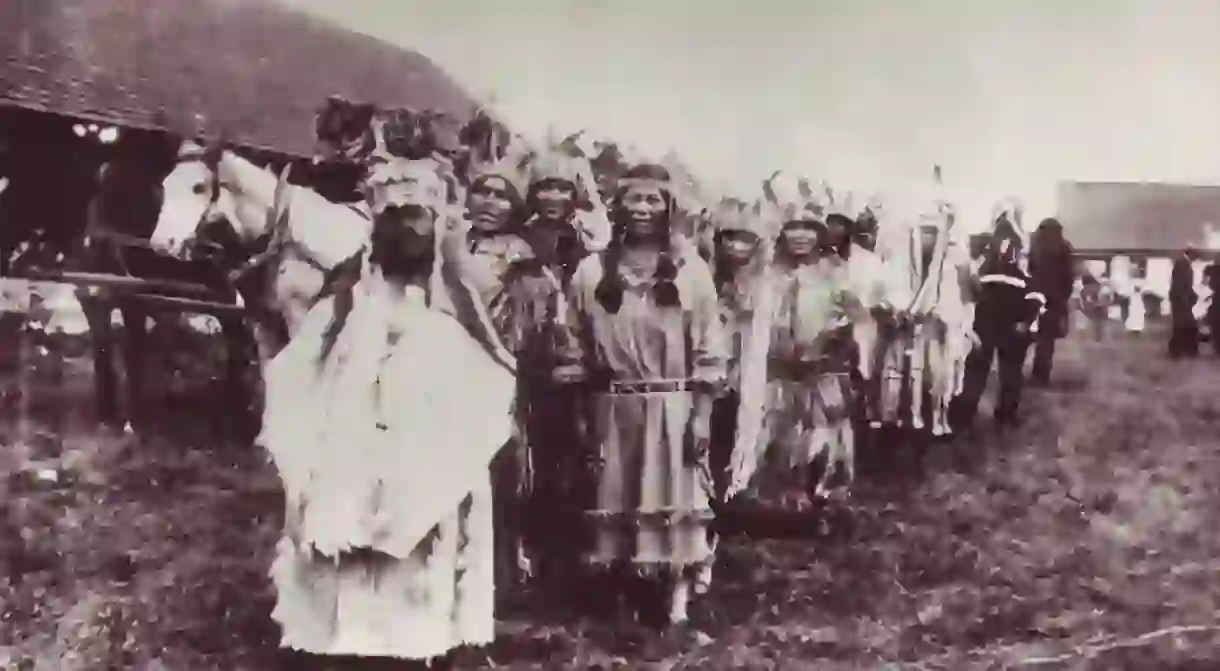9 Things You Need to Know About Canada's First Nations

First Nations – also known as Natives and Native Canadians – are an Aboriginal group in Canada and one of the country’s original inhabitants. Today, their history lives on through cultural centers, museums, and festivals. Here are nine things you may not know about Canada’s First Nations.
One of three Aboriginal groups in Canada
In Canada, the term Aboriginal peoples refers to First Nations, Inuit, and Métis, which was determined in Section 35 of the Constitution Act of 1983. Each of these groups were the country’s original inhabitants, and they all have very different histories. The First Nations have been in Canada for at least 12,000 years, but it could be for much longer.

Terminology
The term First Nations, which Elder Sol Sanderson coined, actually only came into common use in the 1980s. Although they were once referred to as Indians, some Canadians found this term offensive. Today, the use of the term Indian is uncommon in Canada.
Communities
There are currently 634 registered First Nations communities in Canada, with more than half of them in British Columbia and Ontario. Throughout these communities, more than 50 distinct and different languages are spoken. Historically, each community was self-governed and had its own culture and customs.
National Aboriginal Day
In 1996, June 21st was officially declared National Aboriginal Day, celebrating the history and ongoing contributions of all Aboriginal peoples in Canada. The day is significant as many Aboriginal groups already used summer solstice as a day to celebrate their heritage. Today, the day is a part of the annual Celebrate Canadafestivities across the nation, culminating with Canada Day on July 1st.

Population
In 2011, more than 1.3 million people identified themselves as being of First Nations heritage. That’s nearly 4% of Canada’s population, which stood at just over 35 million the same year.
Canadian Indian residential school system
In the 19th century, the Canadian Indian residential school system was created to force the assimilation of First Nations into the European-Canadian culture. The schools, developed under the Indian Act, separated children from families and were run by churches of different denominations.
Some people referred to the schools as “cultural genocide,” but they didn’t close until the 1960s. In 2008, the Canadian government officially apologized to the survivors of residential schools and their families.

Religion and beliefs
One of the First Nations’ most common teachings is that people should live in balance and harmony with the natural world and that all of their values and traditions are gifts from the Creator. It is always important for Elders to vocalize stories and legends, which are then passed down through the generations. The First Nations’ respect for the natural world is visualized in songs, dances, and ceremonies.
Reserves
Under the Indian Act, a reserve is a tract of land set aside for the sole use of First Nations. Today, approximately 40% of First Nations people live on reserves, and the isolated location of some reserves has unfortunately contributed to the high unemployment rate among First Nations. Gas stations on reserves are one way the communities are supporting themselves and the economy. While the First Nations own some of the stations, they also lease some land to gas companies.

Fur trade
In the 1500s, Europeans returned to North America to settle. They traded harmoniously with the First Nations, exchanging European goods like firearms for fur. The First Nations adapted to this new commerce and the established inland trade routes. From 1670 to 1870, Hudson’s Bay Company was a chief fur trader. The company transformed the Indigenous economy as the Europeans’ demand for fur only increased. Hudson’s Bay Company is now a retail powerhouse in Canada.
The First Nations already used tanned animal skin for their own clothing, including moccasins, leggings, and tunics. Caribou fur was particularly valuable in winter, as it’s an excellent insulator.













